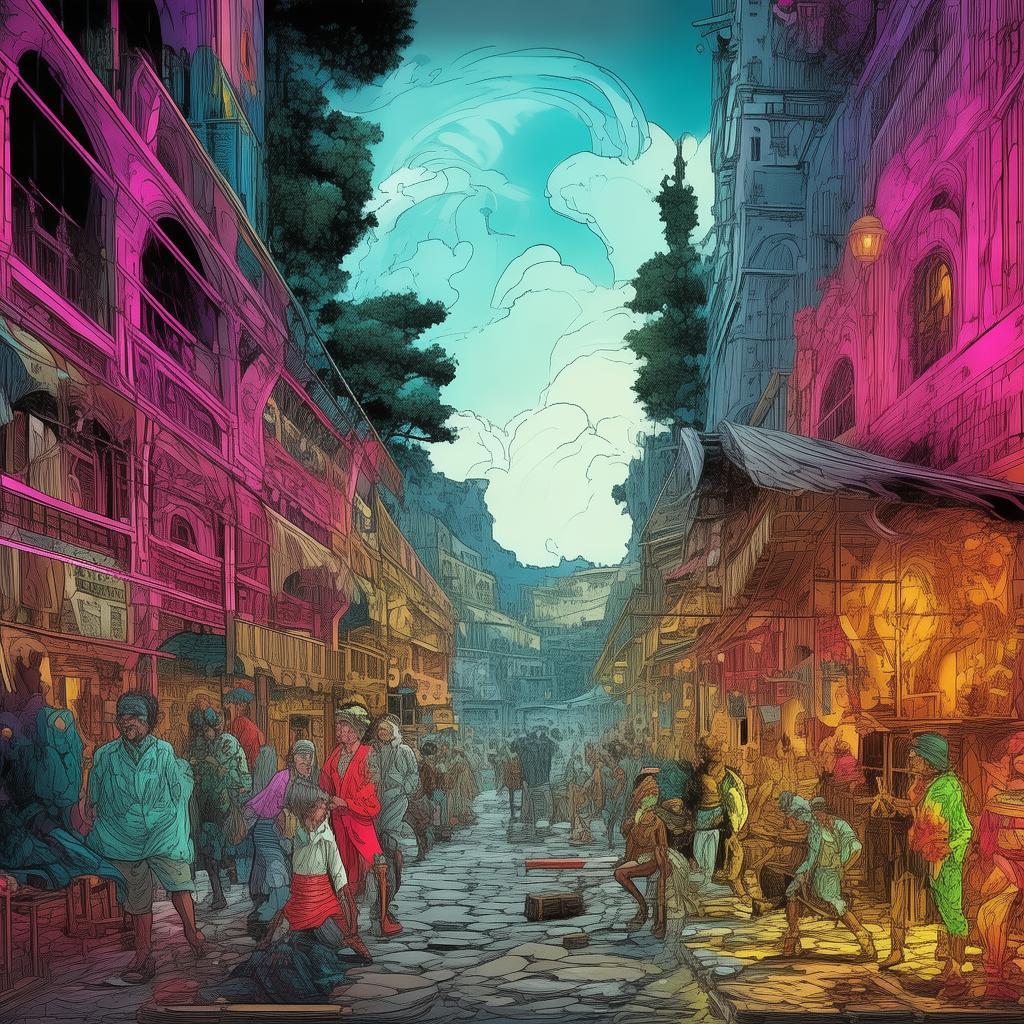The Alphabet Amnesia of the First Graders
In the quaint town of Maplewood, nestled between the whispering canopies of old oaks and the vibrant murmur of the brook, stood a small, sunlit schoolhouse that was the heart of the community. Its creaking floorboards and peeling paint held stories of laughter and learning, of young minds sowing the seeds of knowledge. But one autumn morning, as the leaves turned to shades of crimson and gold, a peculiar incident shattered the tranquility of Maplewood Elementary.
The first graders entered the classroom that morning with their usual excitement, ready to embark on a new adventure in the alphabet. The room buzzed with chatter as the alphabet chart, a colorful collage of letters, greeted them with its familiar, reassuring face. Yet, as the teacher began to sing the alphabet song, a chilling silence fell over the room.
"Come on, kids, let's say it together," Mrs. Thompson encouraged, her voice barely above a whisper.
But the letters remained silent, like a forgotten melody. The children's eyes widened in confusion, their small hands clutched their desks. Mrs. Thompson's voice faltered as she realized the gravity of the situation.
"The alphabet... the alphabet is gone," she whispered, her voice trembling.
The children's faces mirrored her own disbelief. They knew the alphabet by heart; it was their roadmap to the world of reading and writing. But now, as if the very fabric of language had been torn from their grasp, they were lost.
"Did you forget the alphabet, like when we play 'Simon Says'?" a little girl with freckles and pigtails asked, her voice tinged with hope.
Mrs. Thompson shook her head, tears welling in her eyes. "No, it's not that. We've forgotten the alphabet completely."
The children exchanged glances, fear creeping into their eyes. The alphabet was not just a set of letters; it was their connection to the world, a bridge to the vast sea of information that lay beyond their classroom walls.
The incident spread like wildfire through the town. Parents rushed to the school, their hearts pounding with a mix of worry and disbelief. The alphabet was the cornerstone of their children's education, the very foundation of their futures.
As the days passed, the children's plight became the talk of Maplewood. Teachers, parents, and even the town's elders gathered in the school's library, their voices rising in concern and speculation. Was this a mere oversight, or was something far more sinister at play?
The town's librarian, Mrs. Green, a woman with a mind as sharp as her eyes were kind, suggested a radical solution. "We must relearn the alphabet," she declared, her voice firm and determined. "Together."
So began the race against time. The children, led by Mrs. Thompson, took to the library, their voices echoing with the sounds of the alphabet song. The town's residents, from the oldest to the youngest, joined in, their voices blending into a symphony of letters and sounds.
The effort was grueling. The alphabet was not something one could forget and then simply pick up where they left off. It required patience, repetition, and a deep, intrinsic understanding of the language that was now, suddenly, a foreign land.
The children's faces grew weary, their eyes red-rimmed from the effort of learning. But they pressed on, their determination unwavering. They knew that their struggle was not just for themselves; it was for everyone in Maplewood.
As the days turned into weeks, a pattern began to emerge. The children who had struggled to remember the alphabet at first found themselves able to recite it with ease. It was as if their brains had been rebooted, their memories refreshed. The adults, on the other hand, found the process more challenging, their minds not as nimble as they once were.
The discovery was both a relief and a shock. The alphabet was not just a tool; it was a part of who they were. The act of forgetting it had uncovered a deeper truth about the human brain and its capacity for adaptation.
The climax of the story came on a blustery day, as the children and adults gathered in the school's auditorium. The atmosphere was tense, a palpable sense of anticipation hanging in the air. Mrs. Thompson stepped to the front of the stage, her voice steady despite the weight of her emotions.
"Today, we will relearn the alphabet," she announced. "Together."
The room fell silent as the children began to sing. Their voices were strong, their words clear, their spirits undaunted. The adults followed suit, their voices slightly hesitant at first but growing stronger as the alphabet unfolded before them.

When they reached the letter Z, the auditorium erupted in cheers. The alphabet had been restored, and with it, a sense of normalcy returned to Maplewood. The children and adults had faced a challenge that had brought them closer together, had forced them to rely on each other, and had deepened their understanding of the language that was now, once again, a part of their very essence.
The story of the alphabet amnesia spread far and wide, becoming the talk of the nation. People from all walks of life shared their own experiences with language, their own battles with memory, and their own stories of overcoming adversity.
In the end, the children of Maplewood Elementary had not just relearned the alphabet; they had learned a valuable lesson about the resilience of the human spirit. And in the process, they had brought the entire town together, weaving a tapestry of community and shared understanding that would be remembered for generations to come.
As the sun set over Maplewood, casting a golden glow over the schoolhouse, the first graders sat together on the playground, their faces alight with a sense of triumph. They had not just recovered the alphabet; they had recovered something far more precious—their sense of belonging, their place in the world.
The alphabet amnesia of the first graders had been a mystery, a challenge, and a lesson. But in the end, it was also a story of hope, of unity, and of the enduring power of the human heart.
✨ Original Statement ✨
All articles published on this website (including but not limited to text, images, videos, and other content) are original or authorized for reposting and are protected by relevant laws. Without the explicit written permission of this website, no individual or organization may copy, modify, repost, or use the content for commercial purposes.
If you need to quote or cooperate, please contact this site for authorization. We reserve the right to pursue legal responsibility for any unauthorized use.
Hereby declared.









